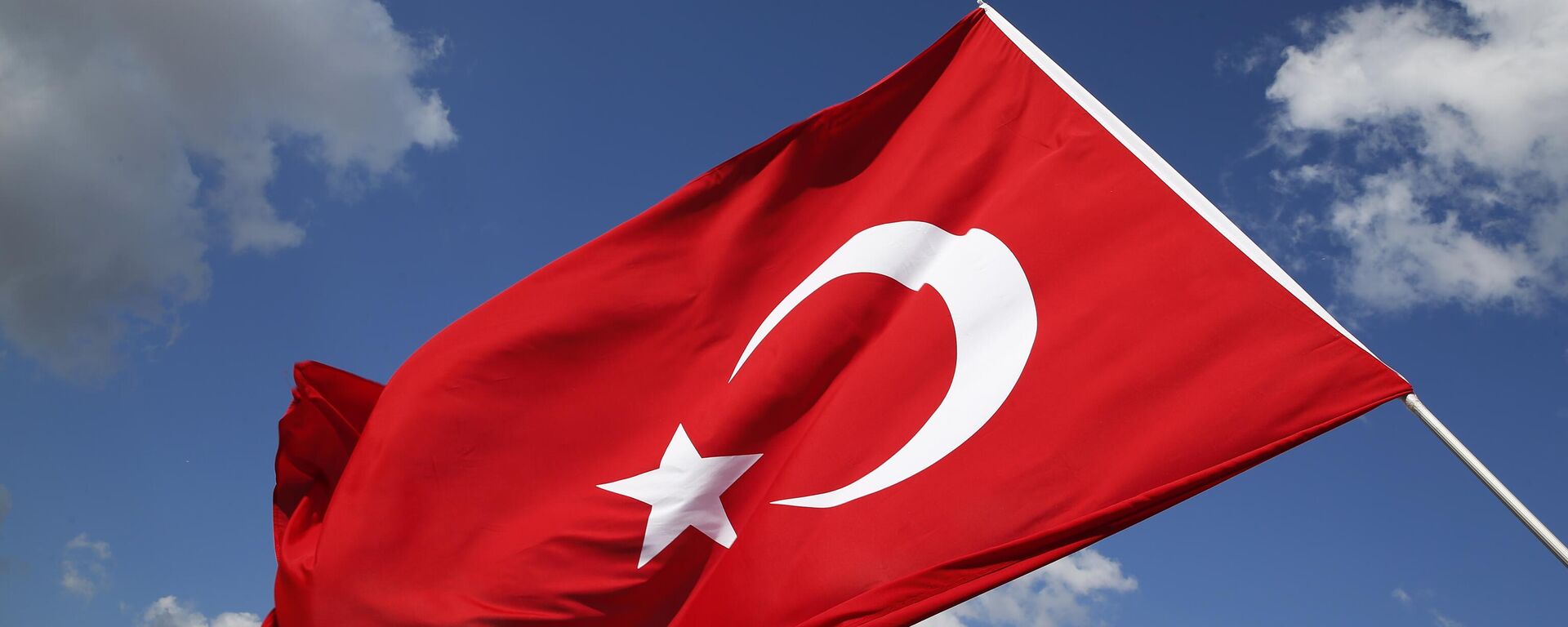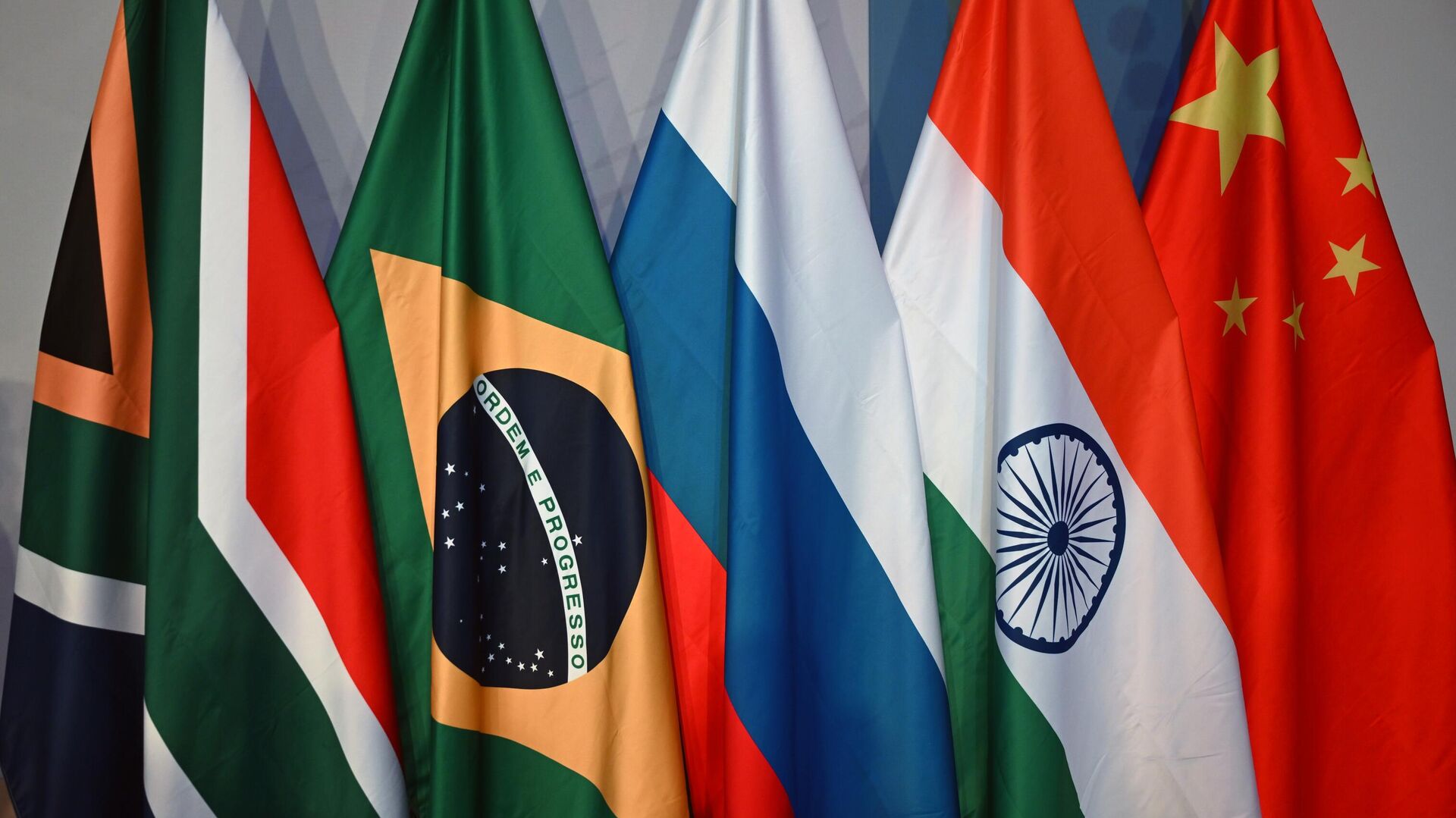https://sputnikglobe.com/20240907/why-turkiyes-move-to-join-brics-as-full-member-is-big-deal-1120069962.html
Why Turkiye's Move to Join BRICS as Full Member is Big Deal
Why Turkiye's Move to Join BRICS as Full Member is Big Deal
Sputnik International
BRICS may receive a new addition in the near future as Turkiye lodged an application for a full-fledged membership with the economic bloc this week.
2024-09-07T18:56+0000
2024-09-07T18:56+0000
2024-09-07T18:56+0000
world
turkiye
brics
membership
https://cdn1.img.sputnikglobe.com/img/07e8/06/07/1118849168_0:173:3030:1877_1920x0_80_0_0_0cf36ff8ca02c86b10b70209db2f0a73.jpg
Turkiye’s membership may be welcome news for BRICS as the Turkish economy was rated by the IMF in 2023 as the 17th largest in the world, with the country’s GPD last year being appraised at a little over $1 trillion.According to the World Bank, Turkiye displayed a steady real GDP growth rate (averaged 5.4%) from 2002 till 2022, as well as a decrease in poverty that dropped from over 20% in 2007 to 7.6% in 2021.Turkiye’s geographical location, right on the boundary between Europe and Asia, along with its control of the Bosporus and Dardanelles Straits linking the Black Sea and the Mediterranean Sea, make the country a natural logistical hub for moving goods between the Global South and Global North.Ankara’s considerable clout in the Middle Eastern affairs, where it has long been one of the top players, and its influence on the African continent may also benefit Turkiye’s future fellow members in the BRICS.At the same time, better access to the BRICS members’ markets may help Turkiye deal with its own economic problems such as, for example, rampant inflation that remains a concern for Ankara today. Ironically, the World Bank notes that the reliance of Turkish industries on “carbon-intensive processes and fossil fuels” presents a challenge in Turkiye’s cooperation with the EU in light of the latter’s focus on “green” technologies and climate change.Meanwhile, BRICS members are not so fixated on destroying their economies for the sake of an environmental agenda and thus might make much better business partners for Turkiye.
https://sputnikglobe.com/20240904/turkiye-in-the-spotlight-as-erdogan-seeks-brics-membership-for-ankara-1120008850.html
turkiye
Sputnik International
feedback@sputniknews.com
+74956456601
MIA „Rossiya Segodnya“
2024
Sputnik International
feedback@sputniknews.com
+74956456601
MIA „Rossiya Segodnya“
News
en_EN
Sputnik International
feedback@sputniknews.com
+74956456601
MIA „Rossiya Segodnya“
Sputnik International
feedback@sputniknews.com
+74956456601
MIA „Rossiya Segodnya“
turkiye brics membership, turkiye economy, turkish economy, turkiye brics trade, turkiye brics cooperation
turkiye brics membership, turkiye economy, turkish economy, turkiye brics trade, turkiye brics cooperation
Why Turkiye's Move to Join BRICS as Full Member is Big Deal
BRICS may receive a new addition in the near future as Turkiye lodged an application for a full-fledged membership with the economic bloc this week.
Turkiye’s membership may be welcome news for BRICS as the Turkish economy was rated by the IMF in 2023 as the 17th largest in the world, with the country’s GPD last year being appraised at a little over $1 trillion.
According to the World Bank, Turkiye displayed a steady real GDP growth rate (averaged 5.4%) from 2002 till 2022, as well as a decrease in poverty that dropped from over 20% in 2007 to 7.6% in 2021.
Turkiye’s geographical location, right on the boundary between Europe and Asia, along with its control of the Bosporus and Dardanelles Straits linking the Black Sea and the Mediterranean Sea, make the country a natural logistical hub for moving goods between the Global South and Global North.
Ankara’s considerable clout in the Middle Eastern affairs, where it has long been one of the top players, and its influence on the African continent may also benefit Turkiye’s future fellow members in the BRICS.

4 September 2024, 05:15 GMT
At the same time, better access to the BRICS members’ markets may help Turkiye deal with its own economic problems such as, for example, rampant inflation that remains a concern for Ankara today. Ironically, the World Bank notes that the reliance of Turkish industries on “carbon-intensive processes and fossil fuels” presents a challenge in Turkiye’s cooperation with the EU in light of the latter’s focus on “green” technologies and climate change.
Meanwhile, BRICS members are not so fixated on destroying their economies for the sake of an environmental agenda and thus might make much better business partners for Turkiye.



